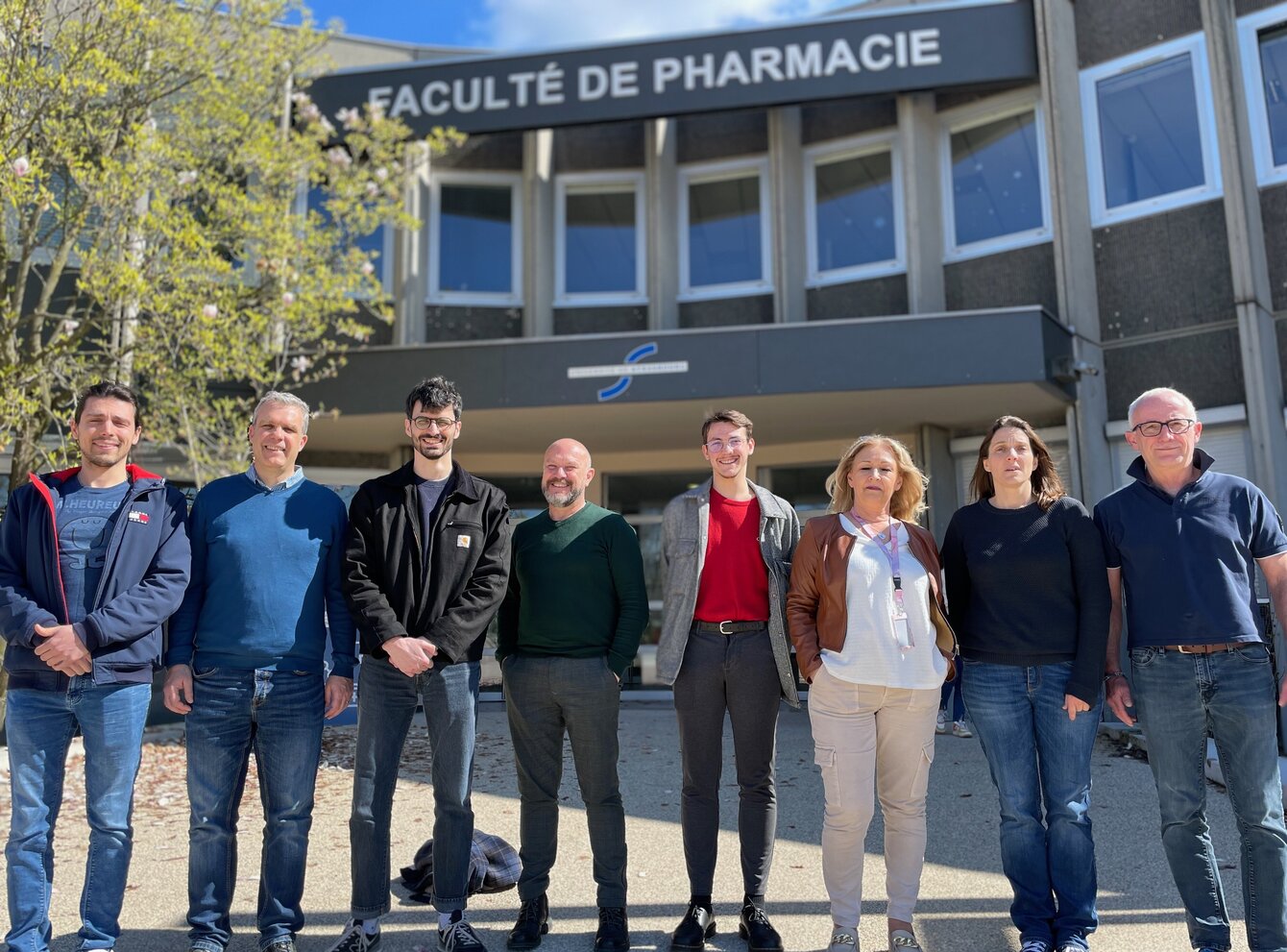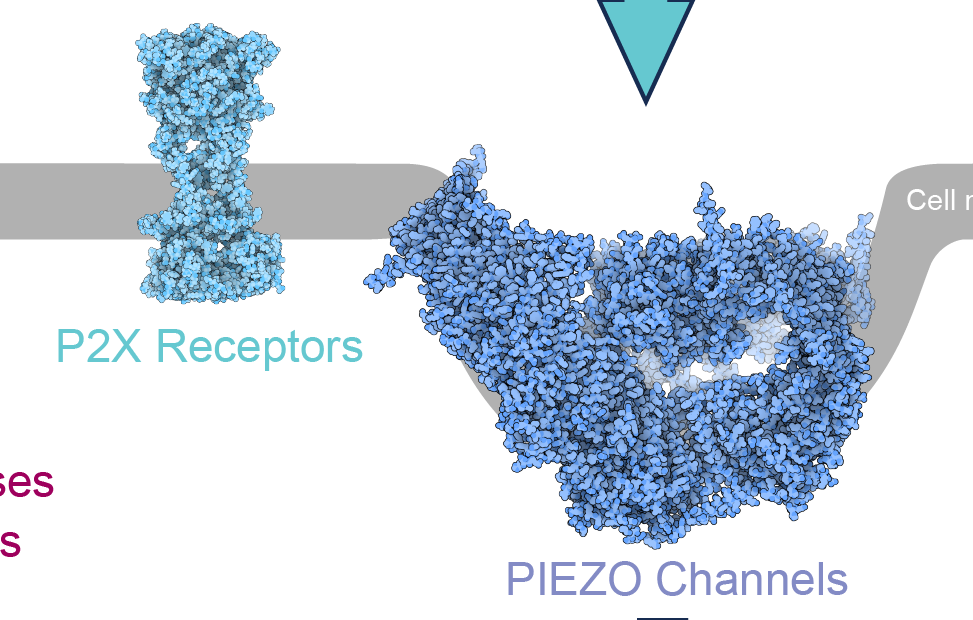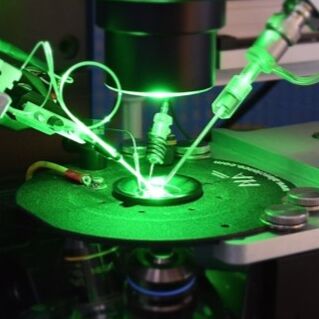Summary of research activity
Our team is focused on understanding how ion channels or ligand-gated ion channels open in response to a stimulus (such as binding of a ligand or mechanical stimulation) and trigger specific cell signaling. To achieve this goal, we employ a diverse array of interdisciplinary techniques spanning biophysics, biology, and chemistry. These techniques include patch-clamp electrophysiology, molecular biology, protein engineering, cell biology and the development of cutting-edge (photo)chemical tools.
Two targets are under scrutiny: ATP-activated P2X receptors, for which we have established expertise for 15 years, and PIEZO channels, a newly discovered family of mechanically activated ion channels. These membrane proteins play crucial roles in normal cell function and are increasingly recognized as potential therapeutic targets in various diseases such as cancer, neuroinflammation, neurodegenerative disorders, neuropathic pain, and cardiovascular diseases.
Our research endeavors have led to the development of a diverse set of chemical tools capable of probing, imaging, and controlling the activation of P2X receptors and PIEZO channels within their cellular environment. One notable achievement is our design of chemical optogenetic tools that can activate these ion channels with light. This activation mechanism relies on azobenzene-based photoswitches covalently attached to the protein through engineered cysteine mutations. Upon light exposure, these photoswitches change shape, inducing conformational changes in the ion channels and leading to channel gating.
These chemical biology tools not only provide new insights into the biophysical mechanisms of these ion channels but also enable the interrogation of their function in tissues with greater specificity compared to their natural stimuli, such as ATP or mechanical forces.
The team is part of the Jean-Marie Lehn Foundation, the Interdisciplinary Thematic Institute (ITI) NeuroStra, and the EUR EURIDOL. It is affiliated with the ED 414. Thomas Grutter is a USIAS Fellow 2019.



